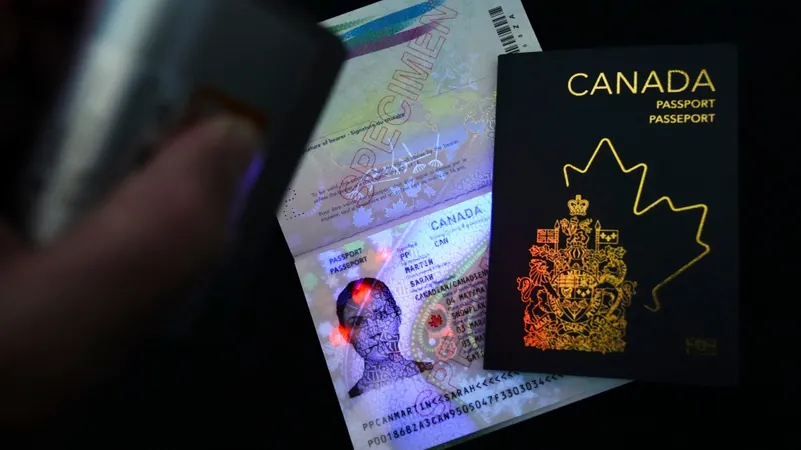
Canada Falls in Global Passport Rankings: What It Means for Travelers
2025-01-08
Author: Jacques
Canada Falls in Global Passport Rankings
A recent global ranking has cast shadow on Canada’s reputation for being welcoming to the world. According to the 2025 Henley Passport Index, Canada has dropped three places over the last decade and is now counted among the 'top 5 losers' in passport strength.
Current Ranking of Canada in the Henley Passport Index
In the latest index, Canada stands at seventh place out of 199 passports, joining Malta and Poland with access to 188 destinations without the hassle of a visa. Singapore retains its crown as the country with the world’s most powerful passport, granting visa-free access to an impressive 195 destinations. Following Singapore is Japan in second place with 193 destinations, and Finland, France, Germany, Italy, South Korea, and Spain tied at third with 192 destinations each.
Implications of Canada’s Decline
In contrast to these leaders, Canada’s decline raises questions about its accessibility for travelers. The ranking process used by the Henley Passport Index relies on data from the International Air Transport Association (IATA), emphasizing the growing importance of global mobility in a post-pandemic world.
Other Notable Changes in the Rankings
Notably, China has made a remarkable leap in the rankings, jumping from 94th place in 2015 to 60th in 2025, increasing its visa-free travel options by an impressive 40 destinations. The United Arab Emirates has also seen significant improvement, now positioned in 10th place with access to 185 destinations.
Countries Facing Decline
On the downside, Venezuela has suffered the most dramatic fall, plummeting from 30th to 45th over the past decade. The United States, once prominently ranked second, has also faced a decline, now sitting at ninth place. Having been at the top as recently as 2015, the United Kingdom now rests in fifth place, reflecting broader trends of changing international relations and travel agreements.
The Mobility Gap
At the very bottom of the table is Afghanistan, which offers visa-free access to a mere 26 destinations. In a striking comparison, passport holders from Singapore can travel to 169 more destinations visa-free than their Afghan counterparts, the report highlighted this disparity as the 'largest mobility gap' in the index’s history, underscoring the ongoing challenges faced by citizens of certain nations.
Conclusion and Future Outlook
This shift in passport rankings serves as a reminder of how geopolitical factors and international relations impact global mobility. For Canadians, this may be a wake-up call to explore new avenues for enhancing travel freedom and ensuring that Canada maintains its position as a favorable destination on the world stage.









 Brasil (PT)
Brasil (PT)
 Canada (EN)
Canada (EN)
 Chile (ES)
Chile (ES)
 Česko (CS)
Česko (CS)
 대한민국 (KO)
대한민국 (KO)
 España (ES)
España (ES)
 France (FR)
France (FR)
 Hong Kong (EN)
Hong Kong (EN)
 Italia (IT)
Italia (IT)
 日本 (JA)
日本 (JA)
 Magyarország (HU)
Magyarország (HU)
 Norge (NO)
Norge (NO)
 Polska (PL)
Polska (PL)
 Schweiz (DE)
Schweiz (DE)
 Singapore (EN)
Singapore (EN)
 Sverige (SV)
Sverige (SV)
 Suomi (FI)
Suomi (FI)
 Türkiye (TR)
Türkiye (TR)